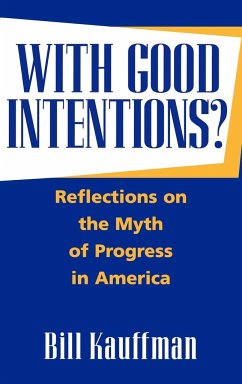Kauffman's perspective on progress in America-from the point of view of those who lost-revives forgotten figures and reinvigorates dormant causes as he examines the characters and arguments from six critical battles that forever altered the American landscape: the debates over child labor, school consolidation, women's suffrage, the back-to-the-land movement, good roads and the Interstate Highway System, and a standing army. The integration of these subjects and the presentation of the anti-Progress case as a coherent political tendency encompassing several issues and many years is unprecedented. With wit, passion, and an arsenal of long-neglected sources, Kauffman measures the cost of progress in 20th-Century America and exposes the elaborate plans behind seemingly inevitable reforms. Kauffman brings to life such people and places as Ida Tarbell, the muckraker who thought that suffrage would ruin women; Onward, Indiana, the town that took up arms to defend its high school from death by consolidation; and the motley band of agrarian poets and ghetto dwellers who tried to stop the bulldozers that paved over America. He maintains that these forlorn causes-usually regarded as quaint, archaic, and hopeless-rested, in large part, upon quintessential American ideals: limited government, human-scale community, and family autonomy. The victory of progress has uprooted our citizens, swollen the central state at the expense of liberty, and sucked much of the life from what was once a nation of small communities.
Hinweis: Dieser Artikel kann nur an eine deutsche Lieferadresse ausgeliefert werden.
Hinweis: Dieser Artikel kann nur an eine deutsche Lieferadresse ausgeliefert werden.








